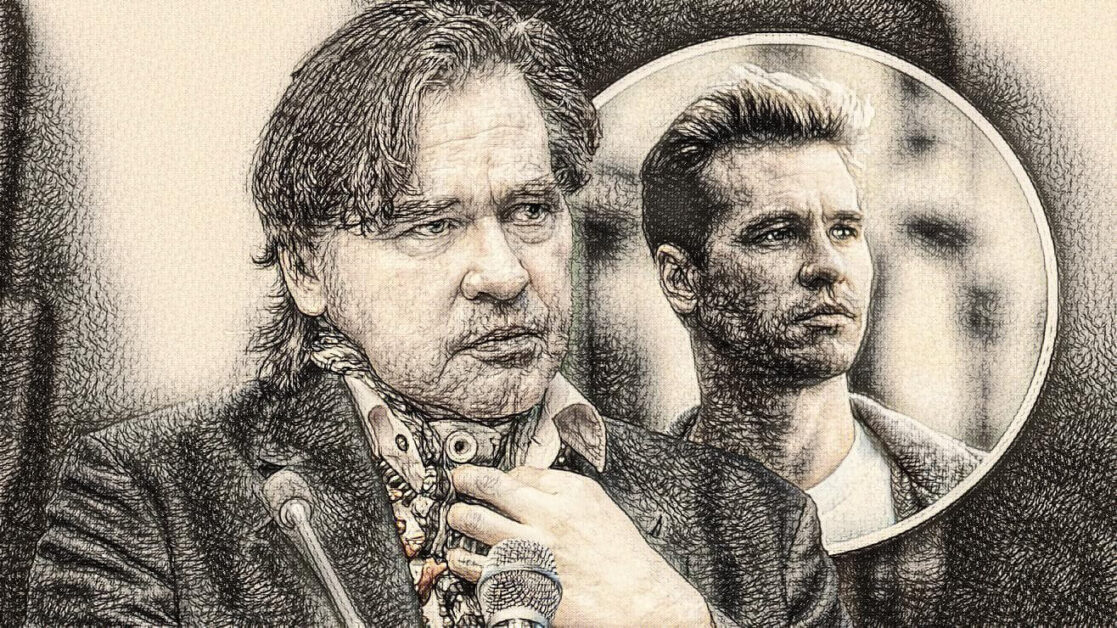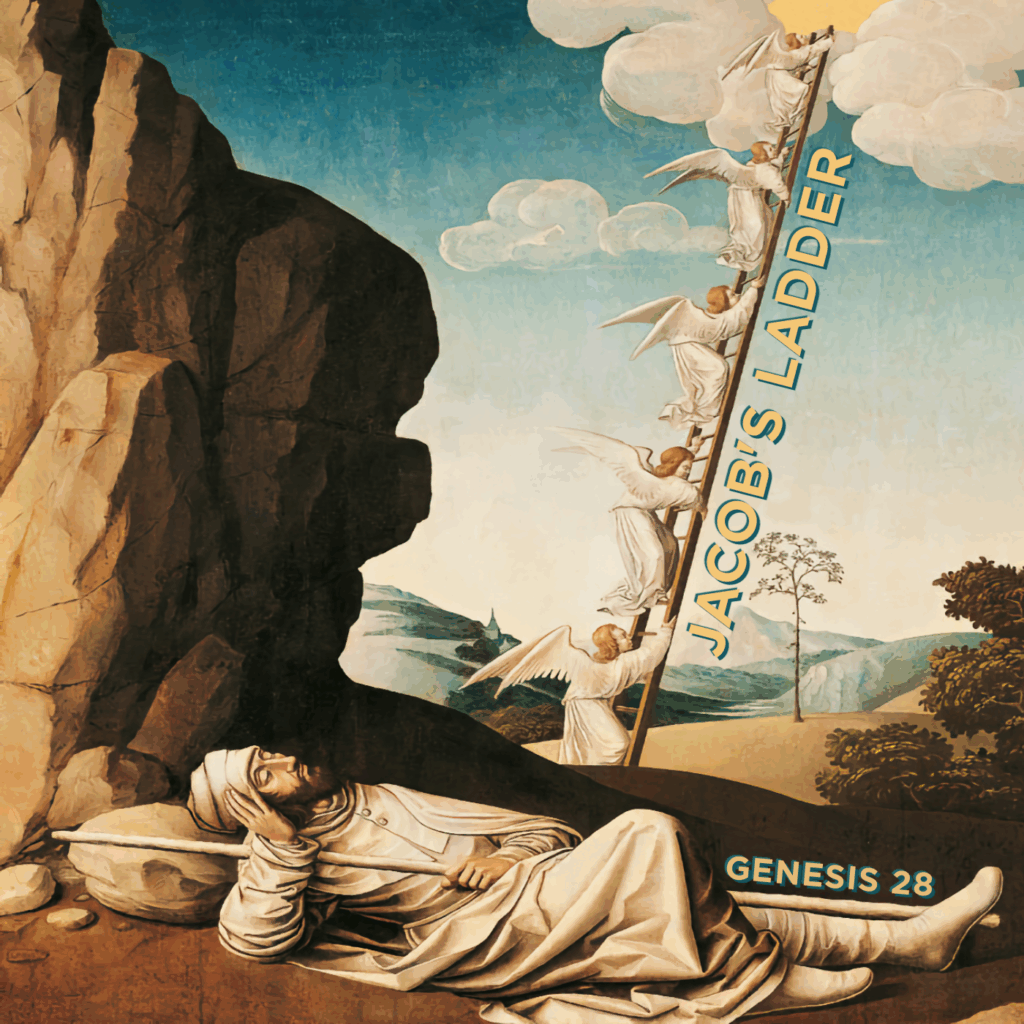
When the Dead Visit the Living: Kilmer, Dreams, and Divine Longing
The night I learned of Val Kilmer’s death, I had a dream. He appeared in it quietly, not with the bravado of his many film roles, but as a kind of weary traveler. He was driving. I don’t know where we had come from, but he offered to take me home. When we arrived at my old childhood house, he asked if he could stay and hang out a while. It was a gentle request, as though he didn’t want to be alone. My mother was there, curious and welcoming. In the dream, he was alive, but adrift, as if without a fixed destination, as if suspended between here and there, earth and something else. There was a stillness in him, but also a question.

I had just posted about his passing before drifting off to sleep. So perhaps, some would say, the dream was merely the subconscious sorting of information. But not all dreams are noise. As the Book of Job reminds us, “In a dream, a vision of the night, when deep sleep falls on men, while they slumber on their beds, then He opens the ears of men and terrifies them with warnings” (Job 33:15–16). Dreams, in the biblical tradition, are often thresholds. Jacob dreams of a ladder bridging heaven and earth (Genesis 28:10-17); Joseph receives divine instruction in his sleep (Matthew 1:20). In such moments, what is “lost” may be shown the path to being found.
This dream of Kilmer became, for me, more than a moment of mourning. It became a parable. Of a man. Of a generation. Of a culture unsure of what home even means anymore.
In Top Gun: Maverick, Kilmer’s final and perhaps most poignant on-screen appearance, he plays an older Iceman, his voice silenced by illness, but his presence exuding a kind of unspoken grace. The reunion between him and Tom Cruise’s character is more than narrative closure; it is a meditation on memory, decay, and the fragile continuity of identity. That scene blurred the lines between fiction and reality. A digitally reconstructed voice allowed Kilmer’s character to speak; one could argue that it is a symbolic resurrection of sorts. And in this liminal moment, there was a palpable sense of eternity pressing through the celluloid.
In a culture of endless becoming, Kilmer’s roles often gestured toward the tragic beauty of being. Kilmer’s portrayal of Jim Morrison in The Doors was more than just a mere performance; it was a profound journey into the Dionysian self-destructive quest for transcendence, an attempt to become a god through unwavering sacrifice. His Doc Holliday in Tombstone was one who was resigned, brilliant, and dying, who asked to be alone as death approached. In that moment, a flicker of realism emerged. Holliday, portrayed by Kilmer with aching restraint, seemed to know what the Catechism affirms: that in death, one goes to meet God alone (CCC 1021). It was a performance both artistic and proleptic, a foreshadowing of Kilmer’s own later suffering through tracheotomy and the stripping away of fame’s illusion.
In The Salton Sea, one of his most underrated roles, Kilmer plays a man caught between identities, anguished and broken. It is a story of escape, not just from the world, but from the self. Paired with Val, which was his 2021 autobiographical documentary, this role becomes all the more revealing. Val is a mosaic of decades of self-documentation, stitched together into a kind of cinematic confession. We see a man confronting his limits, his voice gone, but his vision sharpened. It is as if he was searching, through all the roles and all the masks, for the face he had before the world told him who to be.
Jung once wrote that dreams are the language of the soul and that they bring to consciousness the archetypal energies of the collective unconscious. Aristotle, two millennia prior, held that dreams may offer a form of rational cognition in sleep, i.e., a kind of remembering. Descartes wondered if dreams were indistinguishable from waking life, questioning the very nature of being. But Christianity offers something more profound: that dreams may point not inward, but upward. They are not merely reflections of self but echoes of the Uncreated Reality we were made for.

When I dreamt of Kilmer, I sensed that ache, the ache to return, to be found. “For the Son of Man came to seek and to save the lost” (Luke 19:10). It is the story of the prodigal, the exiled heart, the soul that has forgotten its home. And yet, even in his brokenness, Kilmer bore witness, through poetry, silence, humor, and pain, to a longing not of this world.
Death, for the Catholic, is not an end but a veil. It is the moment the soul separates from the body and begins the journey toward final judgment and, God willing, beatitude. As the Catechism teaches, “Each man receives his eternal retribution in his immortal soul at the very moment of his death” (CCC 1022). It is a stark doctrine, but one not devoid of hope. The God who knows us also dreams for us to find us and bring us home.
I do not claim to know the state of Kilmer’s soul. That is a mystery between him and God. But I know that in the dream, he wanted to be near. And that longing for presence, belonging, and communion is no small thing.
He was, in the end, a man of masks, like all of us. But also a man who seemed to know, intuitively, that we are more than our performances. He understood that his true nature and worth, the imago Dei, the image of God, lie behind the archetype and the many roles he played.
May Val Kilmer find the home his roles longed for. And may our dreams remind us of the same.


